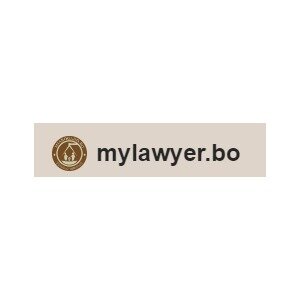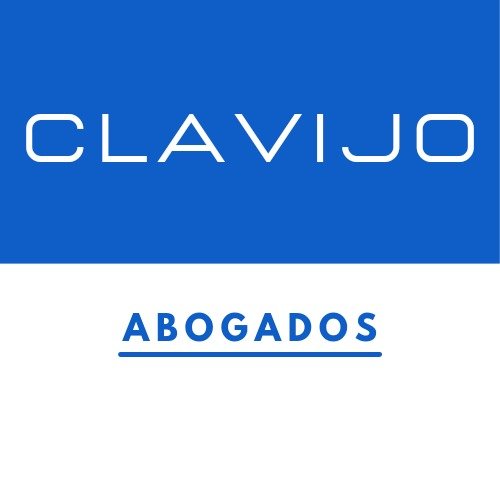Best Criminal Litigation Lawyers in Bolivia
Share your needs with us, get contacted by law firms.
Free. Takes 2 min.
Or refine your search by selecting a city:
List of the best lawyers in Bolivia
About Criminal Litigation Law in Bolivia
Criminal litigation in Bolivia involves the process of defending or prosecuting individuals accused of committing a crime. It encompasses a variety of legal procedures, including investigation, indictment, trial, and sentencing. The Bolivian legal system is built upon a mix of civil law and traditional indigenous laws, with recent reforms aimed at improving judicial efficiency and human rights safeguards. Criminal cases in Bolivia are handled by specialized courts, and the legal process is generally inquisitorial, meaning the judge plays a significant role in investigating the facts of the case.
Why You May Need a Lawyer
There are several situations where individuals may require legal assistance in criminal litigation in Bolivia:
- Arrest or Detention: If you are arrested or detained, a lawyer can help ensure your rights are respected and prevent unlawful treatment.
- Charges Filed: If formal charges are brought against you, a lawyer can provide legal representation to build a strong defense and argue your case in court.
- Investigation: During the investigative phase, legal advice is crucial for guiding you through the process and safeguarding your rights.
- Plea Negotiations: A lawyer can assist in negotiating plea bargains, potentially reducing charges or penalties.
- Trials: Legal representation is essential during trials to present evidence and arguments effectively.
- Appeals: If you wish to appeal a criminal conviction or sentence, a lawyer can navigate the complex appeals process.
Local Laws Overview
Understanding the key aspects of Bolivian criminal law is crucial for anyone involved in criminal litigation:
- Presumption of Innocence: The Bolivian Constitution guarantees that an accused person is presumed innocent until proven guilty.
- Right to Defense: Every defendant has the right to legal defense and representation by a qualified lawyer.
- Judicial Independence: The Bolivian judicial system emphasizes the independence of the judiciary, free from external influences.
- Inquisitorial System: Judges in Bolivia play an active role in investigating and adjudicating criminal cases.
- Alternative Measures: In certain cases, alternative measures to incarceration, such as community service or rehabilitation programs, may be available.
Frequently Asked Questions
What should I do if I'm arrested in Bolivia?
Contact a lawyer immediately to ensure your rights are protected and to receive appropriate legal advice.
Can foreigners receive legal assistance in Bolivia?
Yes, foreigners are entitled to legal representation and must be provided with a translator if they do not speak Spanish.
How long can authorities detain someone without charges?
Under Bolivian law, individuals can be detained for up to 24 hours without charges while police conduct initial investigations.
What is preventive detention?
Preventive detention is a measure where individuals are held in custody during the investigation and trial phases to prevent them from fleeing or tampering with evidence.
What role do public defenders play in Bolivia?
Public defenders are available to provide free legal assistance to those unable to afford private lawyers, ensuring access to justice for all.
What should I do if I disagree with a trial verdict?
A lawyer can help you file an appeal, challenging the verdict or sentence through higher courts.
Are plea bargains common in Bolivia?
Plea bargains are possible but less common than in adversarial legal systems. They require negotiation and legal oversight.
How is a sentence determined?
Sentencing is based on various factors, including the severity of the crime, criminal history, and potential for rehabilitation, as guided by the Penal Code.
Can I get a sentence reduced?
Yes, sentences can sometimes be reduced through appeals or demonstrating good behavior while serving time.
What are the consequences of a criminal conviction?
A criminal conviction can lead to imprisonment, fines, or community service, and may have long-term impacts on employment and civil rights.
Additional Resources
For more information and assistance, consider reaching out to the following organizations and governmental bodies:
- Bolivian Judicial Authority: Offers information on the judicial process and access to court resources.
- Public Defender's Office: Provides free legal assistance to those who qualify.
- Bar Associations: Can connect individuals with qualified lawyers specializing in criminal litigation.
- Human Rights Organizations: Support individuals in ensuring their rights are respected, especially in criminal proceedings.
Next Steps
If you require legal assistance in criminal litigation, consider the following steps:
- Gather and document all information relating to your case.
- Seek the services of a qualified criminal defense lawyer promptly.
- Consult with your lawyer to understand your rights and possible defenses.
- Prepare for each stage of the legal process with guidance from legal counsel.
- Utilize available resources, such as public defenders, if facing financial constraints.
- Stay informed about any developments in your case and remain proactive in your defense strategy.
Lawzana helps you find the best lawyers and law firms in Bolivia through a curated and pre-screened list of qualified legal professionals. Our platform offers rankings and detailed profiles of attorneys and law firms, allowing you to compare based on practice areas, including Criminal Litigation, experience, and client feedback.
Each profile includes a description of the firm's areas of practice, client reviews, team members and partners, year of establishment, spoken languages, office locations, contact information, social media presence, and any published articles or resources. Most firms on our platform speak English and are experienced in both local and international legal matters.
Get a quote from top-rated law firms in Bolivia — quickly, securely, and without unnecessary hassle.
Disclaimer:
The information provided on this page is for general informational purposes only and does not constitute legal advice. While we strive to ensure the accuracy and relevance of the content, legal information may change over time, and interpretations of the law can vary. You should always consult with a qualified legal professional for advice specific to your situation.
We disclaim all liability for actions taken or not taken based on the content of this page. If you believe any information is incorrect or outdated, please contact us, and we will review and update it where appropriate.
Browse criminal litigation law firms by city in Bolivia
Refine your search by selecting a city.











